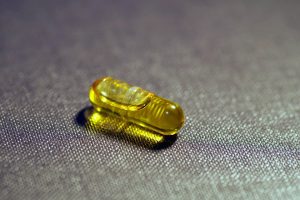
As a new cat owner, understanding and maintaining your feline companion’s health is essential for ensuring a long, happy life. One often-overlooked aspect of cat health is the pH balance of their bodies. Proper pH balance is crucial for preventing urinary tract infections, kidney stones, and other health issues. This comprehensive guide will help you master pH balance in your cat, providing actionable advice and tips to ensure their well-being.
Understanding pH Balance in Cats
The pH scale measures how acidic or alkaline a substance is, ranging from 0 (highly acidic) to 14 (highly alkaline), with 7 being neutral. Cats naturally have a slightly acidic urine pH, typically between 6.0 and 6.5. This acidity helps prevent the formation of struvite crystals and bladder stones, which can cause painful urinary blockages.
The Importance of pH Balance
Maintaining the correct pH balance is crucial for preventing UTIs and other urinary tract issues. An imbalanced pH can lead to the formation of crystals and stones, which may cause blockages, discomfort, and even life-threatening conditions if left untreated. By ensuring a balanced pH, you help maintain your cat’s overall health and well-being.
Signs of pH Imbalance in Cats
Recognizing the signs of pH imbalance can help you take action before serious health issues develop. Watch for the following symptoms:
- Frequent urination or straining to urinate
- Blood in the urine
- Urinating outside the litter box
- Excessive licking of the genital area
- Signs of pain or discomfort, such as vocalizing during urination
If you notice these signs, consult your veterinarian immediately to assess your cat’s health and determine if a pH imbalance is the cause.
Steps to Maintain Proper pH Balance
1. Provide a Balanced Diet
A balanced diet is fundamental for maintaining proper pH levels in your cat. Consider the following dietary tips:
- Choose a high-quality cat food formulated to maintain urinary health. Look for brands with balanced mineral content and urine-acidifying properties.
- Incorporate wet food into your cat’s diet. Wet food increases water intake, which dilutes urine and reduces the risk of crystal formation.
- Avoid feeding your cat solely on dry kibble, as it may contribute to dehydration and increase the risk of urinary issues.
- Consult your veterinarian for dietary recommendations tailored to your cat’s specific needs.
2. Ensure Adequate Hydration
Proper hydration is essential for maintaining a healthy pH balance. Follow these tips to encourage your cat to drink more water:
- Provide fresh, clean water at all times. Consider using a pet water fountain to entice your cat to drink more.
- Place multiple water bowls around your home to make water easily accessible.
- Consider offering flavored water or low-sodium chicken broth to encourage drinking.
- Monitor your cat’s water intake and consult a veterinarian if you notice a significant decrease.
3. Monitor Your Cat’s Urinary Health
Regular monitoring can help you catch urinary health issues before they become severe. Here are some steps to follow:
- Observe your cat’s litter box habits, noting any changes in frequency or behavior.
- Regularly check the litter box for signs of blood or unusual urine color.
- Keep track of your cat’s overall behavior and health, noting any changes that may indicate discomfort.
- Schedule regular veterinary check-ups to ensure your cat’s urinary health is monitored professionally.
When to Consult a Veterinarian
If you suspect your cat has a pH imbalance or urinary issue, consult your veterinarian promptly. They may recommend diagnostic tests, such as urinalysis or imaging, to assess your cat’s condition accurately. Early intervention can prevent serious complications and ensure your cat’s long-term health.
Conclusion
Mastering pH balance is a vital aspect of raising a healthy and thriving cat. By providing a balanced diet, ensuring adequate hydration, and monitoring your cat’s urinary health, you can help prevent pH imbalances and associated health problems. Always consult your veterinarian for personalized advice and guidance, ensuring your feline companion enjoys a long and healthy life.
#ChatGPT assisted in the creation of this article.







